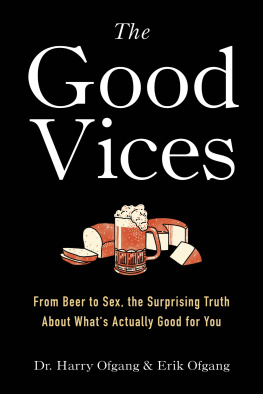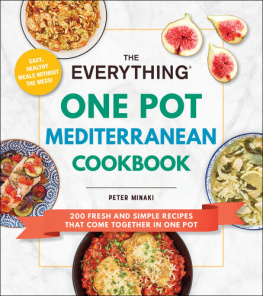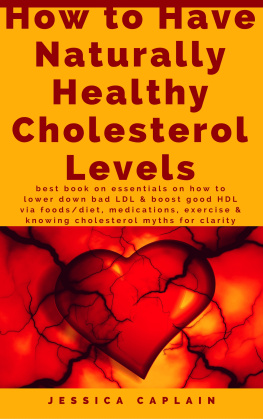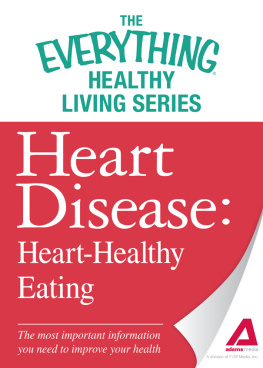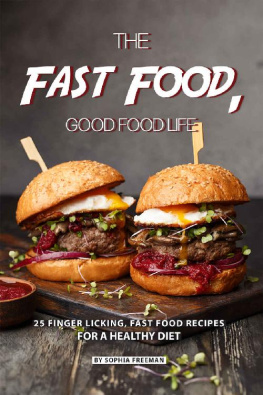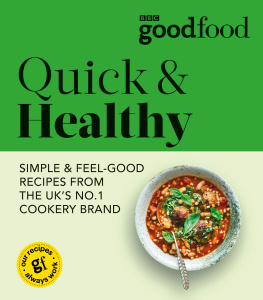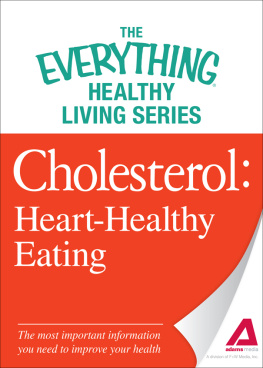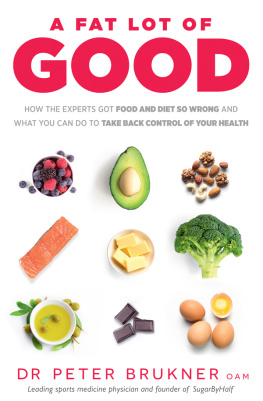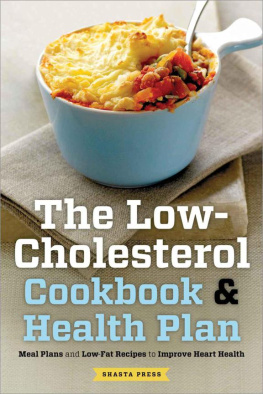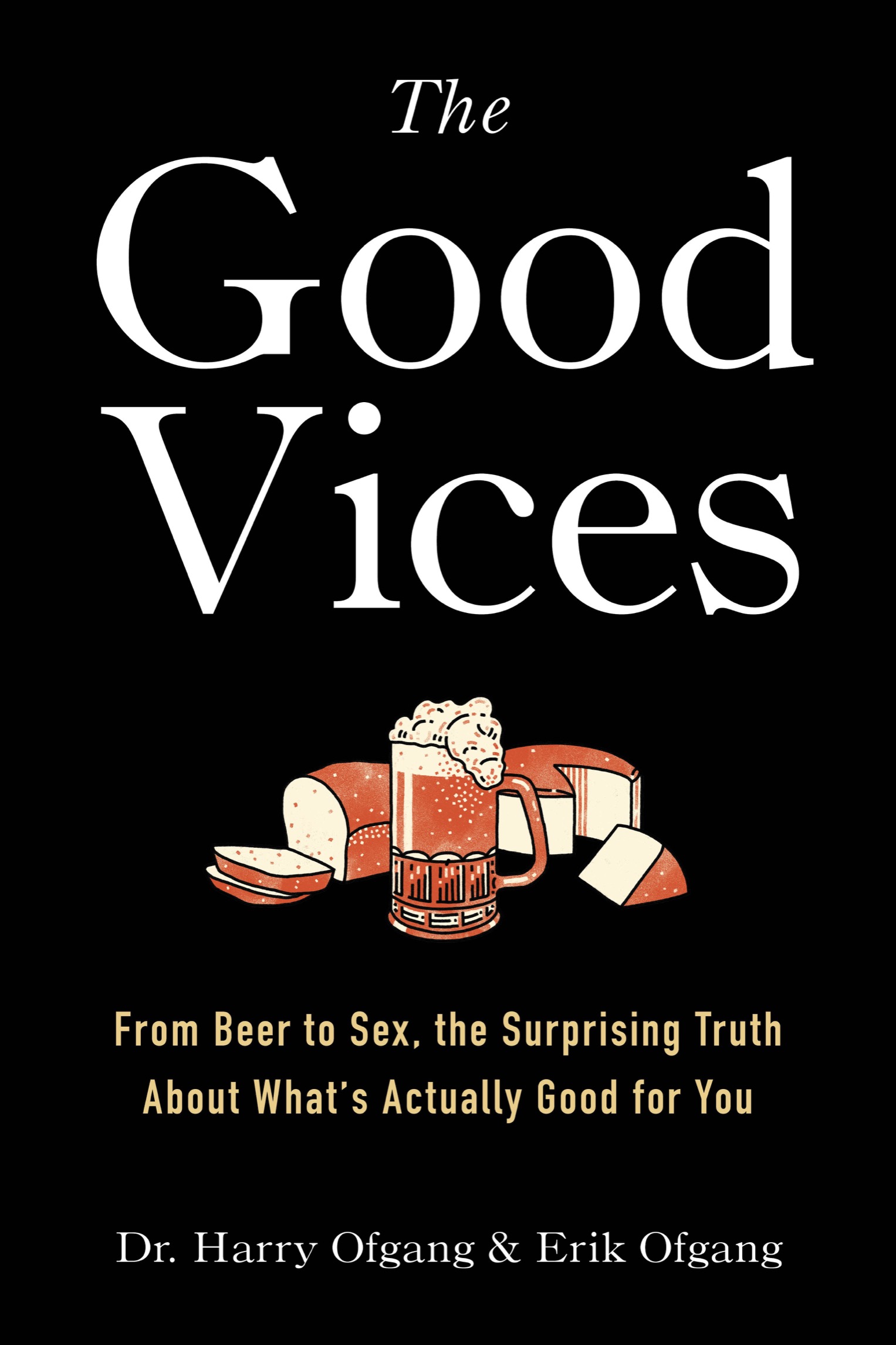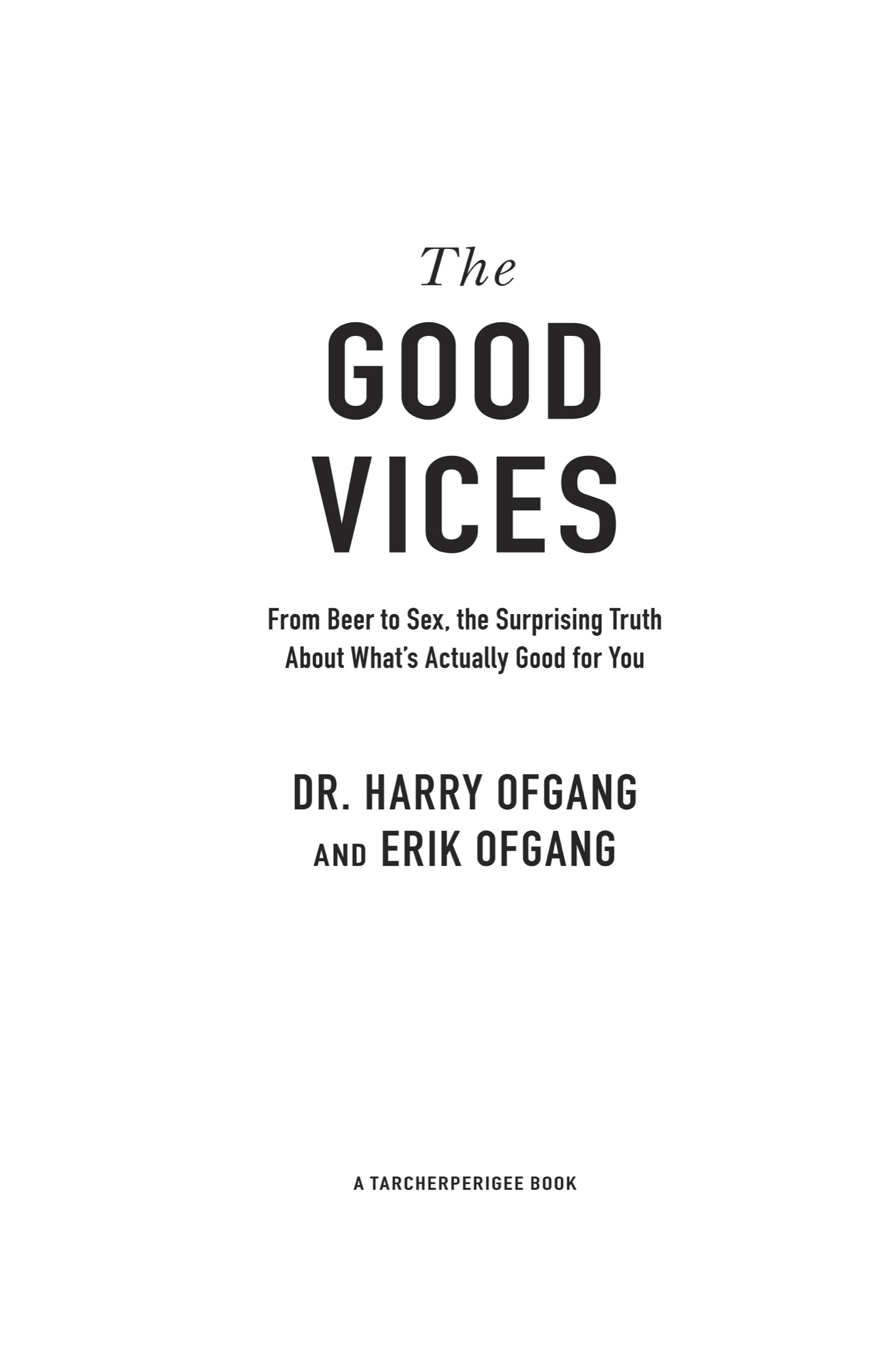
An imprint of Penguin Random House LLC
penguinrandomhouse.com
Copyright 2019 by Harry Ofgang and Erik Ofgang
Penguin supports copyright. Copyright fuels creativity, encourages diverse voices, promotes free speech, and creates a vibrant culture. Thank you for buying an authorized edition of this book and for complying with copyright laws by not reproducing, scanning, or distributing any part of it in any form without permission. You are supporting writers and allowing Penguin to continue to publish books for every reader.
TarcherPerigee with tp colophon is a registered trademark of Penguin Random House LLC.
Library of Congress Cataloging-in-Publication Data
Names: Ofgang, Harry, author. | Ofgang, Erik, author.
Title: The good vices: from beer to sex, the surprising truth about whats actually good for you / Dr. Harry Ofgang and Erik Ofgang.
Description: New York: TarcherPerigee, 2019. | Includes bibliographical references.
Identifiers: LCCN 2018057940| ISBN 9780143131960 (paperback) | ISBN 9780525503750 (ebook)
Subjects: LCSH: NutritionPopular works. | HealthPopular works. | DietPopular works. | BISAC: HEALTH & FITNESS / Healthy Living. | HEALTH & FITNESS / Naturopathy. | HEALTH & FITNESS / Nutrition.
Classification: LCC RA784 .O34 2019 | DDC 613.2dc23
LC record available at https://lccn.loc.gov/2018057940
Neither the publisher nor the author is engaged in rendering professional advice or services to the individual reader. The ideas, procedures, and suggestions contained in this book are not intended as a substitute for consulting with your physician. All matters regarding your health require medical supervision. Neither the author nor the publisher shall be liable or responsible for any loss or damage allegedly arising from any information or suggestion in this book.
Version_2
To my mom and dad, Ethel and Nathan Nussie, who were with me every day, even when I lived across the Atlantic three thousand miles away.
To my grandparents, who gave me not only my parents but the warmest, most loving childhood, and who shared the joys of good vices with me each and every day, literally, as we grew up in their house in Brownsville, Brooklyn.
To my uncle Foxy and aunt Billy, who introduced me to lots of good (and bad) vices.
To my brother Bob, who gave me my first car, a V8 Mercury convertible; my first baseball mitt; and my first dog, Buddy.
To my four children, two of whom I had the joy of delivering at home, for showing me the promise of God in their eyes the moment they were born.
To my and mans best friends, the Orsos and Hondos of the world.
And most of all to Patty, the ultimate Good (and a little bad) Vice.
DR. HARRY OFGANG
To Corinne and my family, without whom there would be no vices good enough to enjoy.
ERIK
Men are more easily governed through their vices than through their virtues.
Napolon
CONTENTS
INTRODUCTION
The art of medicine consists of amusing the patient while nature cures the disease.
VOLTAIRE
A doctors role is simple. As Samuel Hahnemann, the pioneering German physician and founder of homeopathic medicine, explained more than two hundred years ago: The physicians high and only purpose is to restore the sick to health, to cure, as it is termed.
Natural medicine works by metaphorically lighting a fuse, which helps ignite or supercharge the bodys defense mechanism or vital force. Health is first, health is second, health is third. This includes mental, emotional, and physical health.
But what is health? As we learned many years ago on the beautiful Greek island of Alonissos in the Aegean Sea, from our friend, world-renowned author and teacher George Vithoulkas: Health is freedom.
Physical health is freedom from undue pain and other symptoms of disease. Emotional health is freedom to experience the full range of emotions from sadness to happiness, while not being trapped or stuck in any one emotion, negative or positive. For example, it is normal to feel grief and sadness after a breakup or the loss of a loved one, but it is not healthy to be trapped in negative emotions forever. Mental freedom includes freedom of thought, clarity of mind, and selfless creativity.
Finally, once we have physical, mental, and emotional health, we must have enough energy to enjoy our lives. And its this last part, enjoyment, that includes some good vices and often gets left out of the healthy living equation.
The next time youre at the doctors office, if she tells you to stop taking your medication and not to come back for a checkup so soon, youd be confused. If she follows up by telling you that its okay to eat some chocolate and fatty foods, enjoy a glass of beer or wine, or have lots of coffee, youd think she was crazy, right? But in fact she would be doing something far too few medical professionals do: advising patients based on the latest available science.
Much of the health advice we receive today is misguided and based on old conventions rather than the latest research. To be healthy, we are led to believe that we must spend half our lives in doctors offices, ingest a constant stream of narcotic-strength drugs, consume a Spartan diet, drink so-called health elixirs that look like witchs potions, and exercise with the intensity of an Olympic athlete and the joy of a KGB recruit. We must worry about the food we eat, the tests we dont take, and the pills we dont swallow. Above all, we must worry. And all that worry costs us dearlymonetarily, emotionally, and physically.
The goal of medicine should be to increase two things: the quality and the quantity of life. In other words, after seeing your doctor, are you going to live longer and have a better life? Conventional medicine often scares us by telling us what might happen if we dont use this or that drug, have this or that procedure, or take this or that test. Maybe they also should scare us by mentioning the potential risks associated with introducing these often unnecessary and unnatural substances and procedures into the body.
Our old friend and mentor, famed Argentinian physician, professor, and author Francisco Eizayaga, often said that a good doctor never follows money, even though money may follow a good doctor. Yet the annual health-care expenditure in the United States is more than $3 trillion, or an average of close to $10,000 per person. Meanwhile, one study by researchers at Johns Hopkins Medicine estimated that more than 250,000 people die annually in the United States from medical mistakes or wrongdoing, making it the nations third-leading cause of death behind only cancer and heart disease. If this estimate is correct, it means that going to the doctor or hospital and doing exactly as were told may end up killing more of us each year than guns and automobile accidents. Let that sink in for a moment. Starting in the mid-1990s, if you went to a doctor and complained of pain, you may have been given narcotic painkillers so strong, they were once reserved solely for in-hospital use for terminally ill patients. If you said it wasnt working and the pain was persisting, your dosage might have been increased. This pharmaceutical-industry-encouraged practice resulted in opioid use so aggressive that it has helped create a culture of addiction, claiming tens of thousands of lives a year. The prescription painkiller problem also has contributed to the nations heroin epidemic, as estimates indicate that four out of every five heroin users started by misusing prescription opioids.

